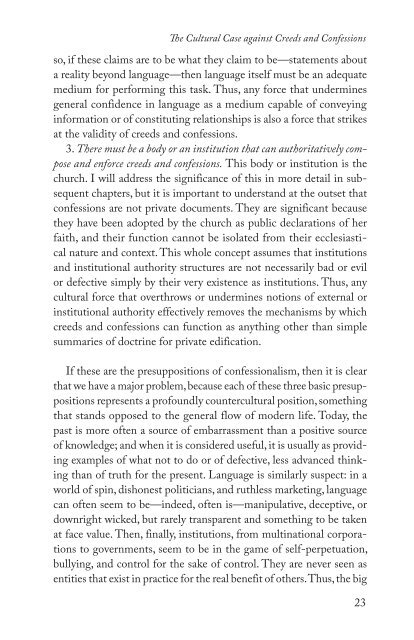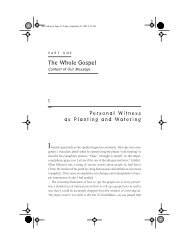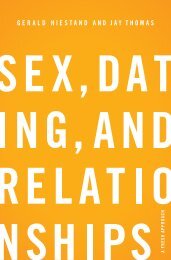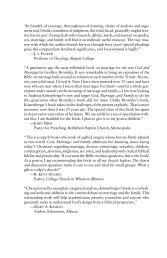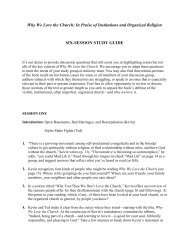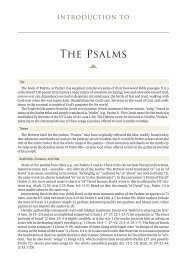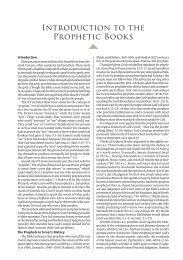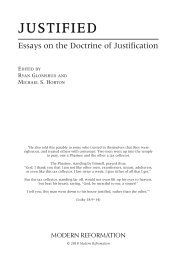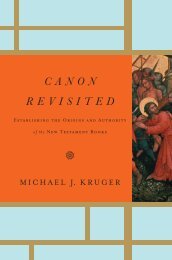The reedal - Monergism Books
The reedal - Monergism Books
The reedal - Monergism Books
Create successful ePaper yourself
Turn your PDF publications into a flip-book with our unique Google optimized e-Paper software.
<strong>The</strong> Cultural Case against Creeds and Confessionsso, if these claims are to be what they claim to be—statements abouta reality beyond language—then language itself must be an adequatemedium for performing this task. Thus, any force that underminesgeneral confidence in language as a medium capable of conveyinginformation or of constituting relationships is also a force that strikesat the validity of creeds and confessions.3. <strong>The</strong>re must be a body or an institution that can authoritatively composeand enforce creeds and confessions. This body or institution is thechurch. I will address the significance of this in more detail in subsequentchapters, but it is important to understand at the outset thatconfessions are not private documents. <strong>The</strong>y are significant becausethey have been adopted by the church as public declarations of herfaith, and their function cannot be isolated from their ecclesiasticalnature and context. This whole concept assumes that institutionsand institutional authority structures are not necessarily bad or evilor defective simply by their very existence as institutions. Thus, anycultural force that overthrows or undermines notions of external orinstitutional authority effectively removes the mechanisms by whichcreeds and confessions can function as anything other than simplesummaries of doctrine for private edification.If these are the presuppositions of confessionalism, then it is clearthat we have a major problem, because each of these three basic presuppositionsrepresents a profoundly countercultural position, somethingthat stands opposed to the general flow of modern life. Today, thepast is more often a source of embarrassment than a positive sourceof knowledge; and when it is considered useful, it is usually as providingexamples of what not to do or of defective, less advanced thinkingthan of truth for the present. Language is similarly suspect: in aworld of spin, dishonest politicians, and ruthless marketing, languagecan often seem to be—indeed, often is—manipulative, deceptive, ordownright wicked, but rarely transparent and something to be takenat face value. <strong>The</strong>n, finally, institutions, from multinational corporationsto governments, seem to be in the game of self-perpetuation,bullying, and control for the sake of control. <strong>The</strong>y are never seen asentities that exist in practice for the real benefit of others. Thus, the big23


